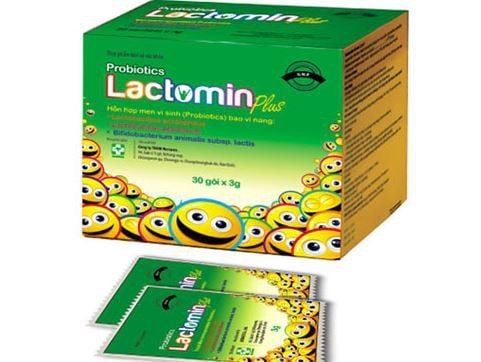This is an automatically translated article.
Fruits are very good for health, not only adults but also children. The choice of time to eat is also extremely important because it will affect the ability to absorb the nutrients in the fruit. When and how to give your baby fruit to eat properly?
You can give your baby more fruit every day is very necessary. However, when feeding children with fruit, certain precautions should be taken.
1. When should the baby eat fruit?
Babies should be exclusively breastfed for the first 6 months of life. Because at this time, the baby's digestive system is not fully developed, immature, not ready to receive foods other than breast milk, even fruits in the form of vitamins or juices. You should only give fruit to babies when they are about 6 months old.Should give children to eat fruit after the main meal from 30-45 minutes, or you can also separate it into a meal, feeding 2-3 hours after the main meal. Because if you give your child fruit right before a meal, he will be full and refuse to eat the main meal. If the child eats it right after a meal, some substances in the fruit will cause indigestion, bloating and may lead to constipation in the child.
Because fruit is often high in fructose, it is best to give it to children in the morning after a long night's sleep. If children eat fruit too close to bedtime, high blood sugar levels will disturb their sleep.
Fruit is easily digested and converted into nutrients through the body's digestive system, so you should give it to your child before you give him energy like before breakfast or before lunch.
After children eat fruit, wait about 1-2 hours for the body to fully digest before giving children main meals. This will give the baby enough time to digest, so that he won't feel bloated and full and his stomach will be ready to receive the next food source.
Never give a child fruit in the main meal. You should never eat fruit with any food. While fruit and vegetable salads are fine, eating them with too many other foods can slow down digestion. The same is true of fruit smoothies. In addition, you should not mix milk with smoothies.
Fruits are packed with nutrients, fiber and healthy carbohydrates that keep the body comfortable throughout the day. Different types of fruit contain different nutrients, like avocados are rich in vitamins K, B5, B6 and E while bananas are rich in potassium... By giving your child a variety of fruits, the body will full absorption of nutrients.
Fruits provide fiber, vitamins, minerals, antioxidants good for health, help reduce the risk of diabetes, heart disease, blood fat or cancer. Fruit is much better than other desserts after meals such as cakes or ice cream after meals, because these foods add a lot of sugar, increasing the risk of obesity and heart disease.

Cho bé ăn trái cây khi nào? Câu trả lời là nên cho bé ăn vào buổi sáng sau một giấc ngủ dài ban đêm.
2. How to feed your baby fruit properly?
At first, children should be familiar with two types of avocados and bananas: Feeding your baby the right fruit is feeding the baby the fruits in the right order. In the first 2-3 weeks of weaning, you should only introduce your baby to two types of fruit, avocado and banana, because these two types are easy to absorb, less allergic. Week 4-5 weaning onwards (after 6.5 months), you can give your child a variety of fruits such as apples, strawberries, mangoes, dragon fruit... but you should still choose fruits. taste less sweet. Give your child the right juice: If you want to give your child juice, you must have the guidance of a nutritionist, do not arbitrarily give your baby fruit juice. You can give your baby juice during/after a main meal, or drink it about 3 hours before a main meal, but you should not let your child drink juice throughout the day. How to combine fruits: For the right way to feed your baby fruit, you also have to know how to combine fruits together so that the baby does not favor one taste and the taste buds are stable, and at the same time help children Better absorption of nutrients from fruit. Some suggestions for combining fruits for mom: Avocado and banana; papaya and mango; apples and bananas, pears; avocado with apple/pear; ... Some fruits should not be combined together such as: Oranges and carrots, guavas and bananas, pomegranates and apricots, papaya and lemons... Every season: Except for fruits available all year round, then you should give your child fruit in the right season, don't let him eat out-of-season fruit. Because off-season fruits are likely to contain many toxic substances such as impregnated ripening drugs, preservatives, etc. or the amount of pesticide residues in them is also higher than that of in-season fruits.

Cho bé ăn trái cây đúng cách, tức là bạn phải biết kết hợp các loại trái cây với nhau sao cho hợp lý
If the child's digestive system is sensitive, the common fructose found in fruits has can be difficult to digest. And if fruit is eaten with or near a meal, this sugar will draw water into the intestines, causing bloating. In this case, you should give your baby fruit at snacks (morning or afternoon) between main meals and not necessarily before meals.
If the child's digestive system is weak or sick, the fiber in the fruit can also cause bloating. Again, you should give your child fruits away from meals.
Fruits are good for the health of children as well as adults. But it is not always possible to give fruit to children. Eating at the right time and in the right way can bring the most benefits to the health and development of young children.
Please dial HOTLINE for more information or register for an appointment HERE. Download MyVinmec app to make appointments faster and to manage your bookings easily.













